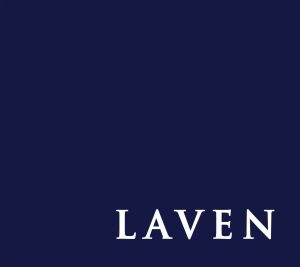Welcome to the seventeenth edition of the monthly Laven Partners’ Monitoring Update on the proposed AIFM Directive.
The final text of the Directive seeking to regulate hedge funds has at last been agreed and the Directive is now charging ahead to become law.
Our job therefore is in part done as we guided you throughout the legislative process of the last 16 months by providing you with a monthly update on the status of this Directive. In the true Laven Partners style, we also looked at any interesting comments made by regulators and leading industry players in relation to the topic.
Our aim was to involve the financial community and notably to aggregate the representation of investors as our view was that the Directive could have severely reduced their access to investment opportunities. By informing some of you we hopefully met some of our objectives.
Intent as we were to cease reporting on the Directive, we realise that for the next few months if not years, the Directive may not monopolise headlines but will certainly impact the industry as some firms take it on board, some investors demand relevant disclosures and some governments implement it in various ways….
Thanks to a warm encouragement and demand from our readers, we have therefore decided to continue with our regulatory newsletter tradition even though the exciting and somewhat unnerving part of the Directive’s legislative process is now over. We will continue to update you on the developments of global regulations affecting the alternative investment industry.
We have also recently written for the Hedge Fund Journal on the final state of the Directive – keep a look out for the magazine’s next issue!
The next monthly newsletter will be issued in January 2011.
Please register your interest and comments by emailing us at [email protected]. Please feel free to forward our monitoring update to anyone who may be interested.
_____________________________________________________________________
Recap of the AIFMD – What was it all about?
In the economic haze that followed the financial crisis of 2008, the European Commission published the first version of the AIFM Directive in April 2009. On 19 October 2010 – 18 months and 17 Directive compromise texts later – the EU Finance Ministers reached agreement on the final text. This was approved during the final Trilogue meeting on 26 October, ending what seemed like a never-ending saga of political tug-of-war that was the draft Directive.
The Directive was voted into European law during the plenary sitting of the European Parliament on 11 November and will come into force at the beginning of 2011. Following a two year transposition period, EU Member States will be required to have implemented the Directive by 2013.
Final Provisions of the Directive
Passporting
Over the past 18-months, we saw a number of different passporting provisions put forward and the issue of passporting remained the central reason for the delay in reaching a consensus over the Directive.
According to the final text, passports will be made available to EU managers from 2013 onwards. Third country passports will be made available to non-EU managers and non-EU funds in 2015.
Accordingly, from 2015, non-EU funds (either with an EU Manager or a non-EU manager) will have to comply with the Directive’s requirements and the following conditions will have to be met:
- A cooperation agreement between the EU authorities and the national authorities of the third country fund’s home state will need to exist and this will need to enable the two authorities to exchange information regarding the supervision of the fund.
- The home state of the third country fund must not be on the Non-Cooperative Countries and Territories list by the Financial Action Task Force.
- A tax treaty between the EU authorities and the home state authorities of the third country fund must exist, following the OECD Model Tax Convention.
Managers of non-EU funds will also be required to have a legal representative in their Member State of reference who will be jointly responsible with the fund manager for compliance with the Directive and who will act as a contact person for the investors, the relevant authorities and the European Securities and Markets Authority (ESMA).
Until 2015, EU managers marketing non-EU funds and non-EU Managers marketing an EU fund or a non-EU fund to EU persons will be subject to marketing their funds in accordance with current national private placement regimes. However, these managers ought to be aware that they may be asked to abide by the standards of the Directive even before 2015, for example, if requested to do so by investors.
During a three year transitional period between 2015 and 2018, both the Directive and national private placement regimes will be in place. This is known as the “dual system period”. In 2018 the European Commission may legislate to terminate the national private placement regimes however this is to be resolved at a later stage.
The EU passports will be awarded by national Member States. The European Commission and ESMA will publish guidelines and rules on implementation on the subject of passporting. The Member States will be required to follow these. Where a Member State disagrees with the passporting decision of another Member State, it can plead the matter to ESMA.
The Directive will not cover passive marketing whereby investors will be allowed to invest into third country funds as long as the investment is based on their own initiative, i.e. there has been no active marketing or promotion by the fund’s manager. This common sense approach is expected to be welcomed by many, leaving a certain level of freedom to investors.
Capital Requirements
The initial capital requirement for asset managers will become EUR 125,000. We believe that this may create barriers to entry, particularly for smaller start-up managers. It is not yet clear whether some grandfathering provisions will apply to existing management companies, granting them certain exceptions or easements of the initial capital requirements for a limited period of time. The Directive will require the fund managers’ head office and registered office to be in the same EU Member State, thus precluding mere letter box entities and also bringing about potential tax structuring issues.
Remuneration
The Directive brings about yet another set of rules on remuneration, in addition to the Capital Requirements Directive. It will require managers to implement new processes including the establishment of remuneration committees made up of members of the management body, but excluding any member performing executive functions. The Directive’s remuneration policy is seen as broad, including not only risk takers and those responsible for control functions but also extending to any employee receiving a total remuneration that takes them into the same remuneration bracket as senior management and risk takers. We wait to see with interest how the Directive’s remuneration rules will be applied in practice to ensure it does not conflict with the Capital Requirements Directive’s remuneration policy.
Exemptions from the AIFM Directive
Smaller fund managers will be exempt from some of the Directive’s provisions provided the value of the assets they manage does not exceed:
- EUR 100 million; or
- EUR 500 million, if the funds managed are unleveraged and cannot be redeemed from within the first five years from investment.
These smaller fund managers will need to choose whether they wish to fully comply with the Directive and thus benefit from its rights such as the EU passport or whether they wish to exercise their right to opt-out from the Directive regime, meeting only some obligatory requirements. In the event that smaller fund managers decide to opt-out, they will not be given the passport right.
Conclusion
Although more accommodating and realistic than the original April 2009 proposal, the final Directive is still seen as representing yet another compliance burden for fund managers without necessarily delivering in terms of investor protection. There are certainly a large number of disclosures that will be made to investors. With too few resources to review operational risks, which include risks in the implementation of the relevant strategy, many investors will not be able to benefit greatly from such disclosures.
It remains to be seen how the Directive will be implemented in practice and how it will affect the industry, and in particular in the UK in view of the impending abolition of the FSA. Given the transitional periods and uncertain dates of the EU passporting regime, it is hard to visualise the final face of EU regulation.
For now, the Directive leaves mixed feelings within the industry: a relief that the final version of the Directive is not as severe as the original proposal and a feeling that the Directive perhaps was a missed opportunity.
At Laven we would have liked to see a real effort towards:
- Enforcing compliance in all asset management firms including fund of funds so that processes of operational compliance are seen to be complied with, especially with regards to investment and risk management processes;
- Enforcing the responsibility of accountants responsible for pricing investment instruments so that it is no longer anyone’s problem; and
- Enforcing the responsibilities of custodians who ultimately with their sophisticated systems should have been able to blow the whistle on spurious assets.
Investors will continue to pay the costs of funds and their service providers, yet no one and not even the EU, is really aware of how to work in their best interests.
We shall continue to endure poor pension returns, and the haphazardness of having to trust managers until something fundamental changes…
Lastly, it would have been nice to touch on controlling central banks and regulators in their way of looking at risk and limit their ability to blame others… maybe that will be for Christmas!
Laven Partners – Your Global Compliance Partner
Laven Partners is a global leader in regulatory compliance, providing practical solutions for financial institutions. Please do not hesitate to contact us if you have any questions with regards to the new Directive and how it will affect your business.




